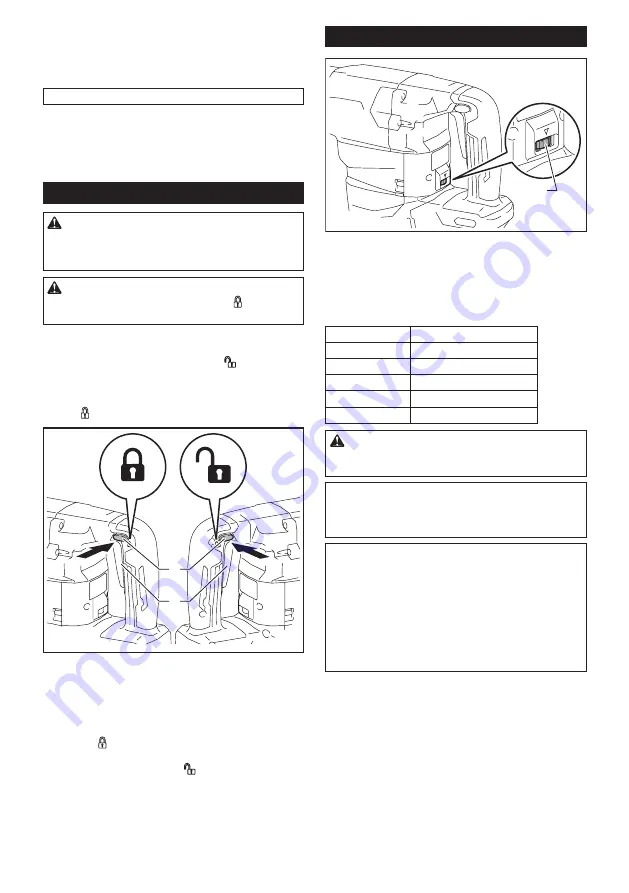
7 ENGLISH
Overheat protection
When the tool or battery is overheated, the tool stops
automatically. In this case, let the tool and battery cool
before turning the tool on again.
NOTE:
When the tool is overheated, the lamp blinks.
Overdischarge protection
When the battery capacity is not enough, the tool stops
automatically. In this case, remove the battery from the
tool and charge the battery.
Switch action
WARNING:
Before installing the battery car-
tridge into the tool, always check to see that the
switch trigger actuates properly and returns to
the "OFF" position when released.
CAUTION:
When not operating the tool,
depress the trigger-lock button from side to
lock the switch trigger in the OFF position.
To prevent the switch trigger from accidentally pulled,
the trigger-lock button is provided. To start the tool,
depress the trigger-lock button from A (
) side and pull
the switch trigger. Tool speed is increased by increas
-
ing pressure on the switch trigger. Release the switch
trigger to stop. After use, depress the trigger-lock button
from B (
) side.
1
2
A
B
►
1.
Trigger-lock button
2.
Switch trigger
Using the trigger-lock button for
continuous operation
For continuous operation, depress the trigger-lock but-
ton from B (
) side while pulling the switch trigger, and
then release the switch trigger. To stop the tool, depress
the trigger-lock button from A (
) side.
Speed change
1
►
1.
Speed adjusting dial
The blows per minute can be adjusted by turning the
adjusting dial.
The dial is marked 1 (lowest speed) to 5 (full speed).
Refer to the table for the relationship between the num-
ber settings on the dial and the blows per minute.
Number
Blows per minute
5
2,650/min
4
2,500/min
3
2,000/min
2
1,500/min
1
1,300/min
CAUTION:
Do not turn the adjusting dial when
the tool is running. Failure to do so may result in
the loss of control of the tool and cause an injury.
NOTICE:
The speed adjusting dial can be turned
only as far as 5 and back to 1. Do not force it past
5 or 1, or the speed adjusting function may no
longer work.
NOTE:
Soft no-load rotation function
Blows at no load per minute becomes smaller than
those on load in order to reduce vibration under no
load, but this does not show trouble.
Once operation starts with a bit against concrete,
blows per minute increase and reach the numbers as
shown in the table.
When temperature is low, the tool may not have this
function even with the motor rotating.








































